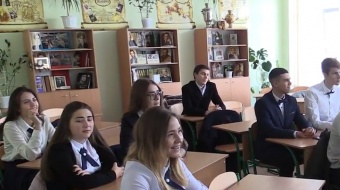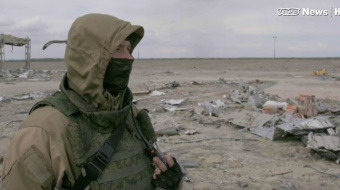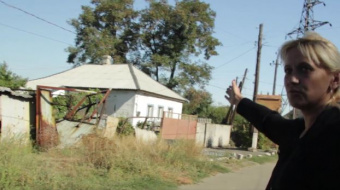Between the bad and the very bad: two scenarios for Donetsk and Luhansk. Part 2
Between the bad and the very bad: two scenarios for Donetsk and Luhansk. Part 2
Positive scenarios for the occupied part of the Donbas are unlikely, the region is threatened with desolation. The way it will look like is evidenced by the experience of PMR (Pridnestrovian Moldavian Republic) and the Nagorno-Karabakh
Please follow the link to read the 1st part of the story
The situation of people in the occupied areas of the Donbas continuously worsens. The situation threatens to turn into a long-drawn-out unresolved conflict with periodic escalations in the demarcation line, or in the frozen conflict in limbo. Any of the scenarios do not bode well for the local population. Is there a way out?
Donbas tomorrow
Military conflict between Russia and Ukraine in the Donbas is not a unique phenomenon in the post-Soviet space. It has much in common with the armed conflicts in Moldova, and between Azerbaijan and Armenia, as a result of which the unrecognized Nagorno-Karabakh and the Pridnestrovian Moldavian Republic have "fallen away". All these conflicts directly or indirectly, have been initiated or supported by Moscow which solved in this way its geopolitical objectives. Nagorno-Karabakh and Transnistria are two real alternative models for transformation of the occupied East of Ukraine. Except, of course, the return of these territories under full control of Kyiv after the withdrawal of Russian troops, mercenaries and heavy weapons. As things stand now, this scenario appears to be the most unlikely.
NKR model. Pace of developments in the Donbas is similar to Nagorno-Karabakh. The same direct separation of the territory by a neighboring state, the escalation of the conflict through the supply of weapons to separatist structures, the creation of "authorities" in the occupied territories, the attempt to legitimize the status of separate regions and, finally, the beginning of peace negotiations, and dragging out the negotiations in the future.
As well as in the east of Ukraine, on the territory of Nagorno-Karabakh there is no foreign peacekeeping forces, that is, the observance of the state of ceasefire is entirely dependent on the goodwill of the parties. Similarly to Donbas, the state is not kept. Since the summer of 2014, the situation in the region has worsened considerably. The record number of collisions over the past 20 years was registered along the front line. Every day in the news there are new mutual accusations of firings and reports of killed and wounded people.
"The key similarity of the Karabakh conflict with the events in eastern Ukraine is that both regions have gone through the phase of bloody armed conflict and both have not yet reached the level of a full freeze of the situation on the front line and the transition to a full peace settlement", - says to LІGA.net Doctor of Political Sciences, deputy director of the Institute of Caucasus Sergey Minasyan.
OSCE Minsk Group was created for the settlement of the Karabakh conflict. Peace talks are underway for more than 20 years, but without much success. Recently, the President of Azerbaijan has called the work of diplomats as "absolutely senseless" and accused them of intending "not to end, but frozen the conflict".
Azerbaijani political scientist Azar Rashidoglu has told to LІGA.net that the inhabitants of the disputed territory of Nagorno-Karabakh are living day to day, trying to solve many social problems, and are little concerned about political issues. "To be a "citizen of an unrecognized state" is not an easy task. They want to live in peace, have a passport which allows you to go for medical treatment, study or leisure. Now people do not have all of this. The unresolved conflict has turned the inhabitants of the occupied territories into the hostages", - he said.
In addition, about 600,000 residents of Nagorno-Karabakh were forced to leave their homes and settle in specially built complexes in Baku and other towns of Azerbaijan. Most of the displaced people are still in need of better housing conditions. But the situation of those who remained in the disputed territory, leaves much to be desired. Unavailable or poor quality medical care and education, restriction of freedom of movement and inability to engage in business are all the direct consequences of the unresolved conflict, because first of all the money goes to the defence of the territory, explains Sergey Minasyan.
After 28 years of mutual hostilities, thousands of killed and wounded, and nearly 4,500 missing persons, destruction of infrastructure and economic isolation of the region "freezing" the conflict looks like a deceptively acceptable way to alleviate the situation of the local population. But this scenario is attractive only at first, says to LІGA.net director of the East-West Research Center Arastun Orujlu.
"Freezing of a conflict is the worst option. In the long run, this has a negative impact not only on the situation of people in the conflict zone (the question of citizenship, the opportunity to travel and to establish business relations), but also on the status of the region limiting its socio-economic and political development, "- considers the analyst.
Please follow the link to read the 3rd part of the story
New service "Explain Ukraine". This is a daily mailout of five articles which were written about the situation in the Donbas by Donbas journalists and translated into English. Honest vision of people who work in the field is unbiased and fresh which is crucial in the world which is full of desinformation and propaganda. We try to share this vision in out daily mailout. You can subscribe here.
You can also join our Facebook community.














